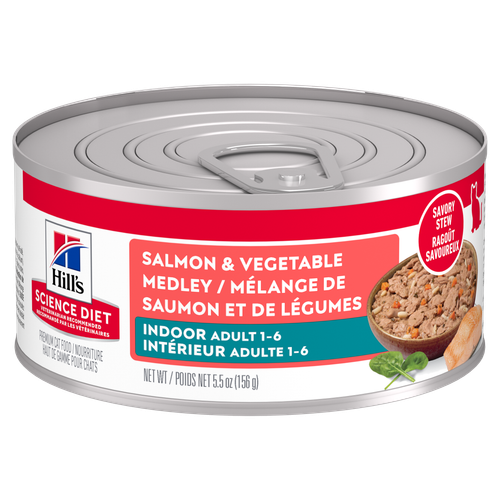
-
Find the right food for your petTake this quiz to see which food may be the best for your furry friend.Find the right food for your petTake this quiz to see which food may be the best for your furry friend.Featured products
 Adult Large Breed Chicken & Barley Recipe Dog Food
Adult Large Breed Chicken & Barley Recipe Dog FoodSupports healthy joints, immune system, digestion, lean muscle & beautiful coat
Shop Now Adult Chicken & Barley Recipe Dog Food
Adult Chicken & Barley Recipe Dog FoodSupports healthy immune system, digestion, lean muscle & beautiful coat
Shop Now Adult 7+ Chicken Meal, Barley & Rice Recipe Dog Food
Adult 7+ Chicken Meal, Barley & Rice Recipe Dog FoodSupports energy level & beautiful coat. Helps keep immune system, heart & kidneys healthy
Shop NowFeatured products Adult Indoor Salmon & Vegetable Medley Cat Food
Adult Indoor Salmon & Vegetable Medley Cat FoodPrecisely balanced nutrition for indoor cats with the delicious taste of savory salmon and vegetables
Shop Now Adult Urinary Hairball Control Savory Chicken Entrée cat food
Adult Urinary Hairball Control Savory Chicken Entrée cat foodSupports the health of the whole urinary system with optimal levels of magnesium
Shop Now Kitten Sensitive Stomach & Skin Salmon & Vegetable Stew
Kitten Sensitive Stomach & Skin Salmon & Vegetable StewSupports kitten growth, digestive health, nourishes skin and promotes a lustrous fur
Shop Now -
Dog
- Dog Tips & Articles
-
Health Category
- Weight
- Food & Environmental Sensitivities
- Urinary
- Digestive
- Joint
- Kidney
- Dental
- Cancer
-
Life Stage
- Puppy Nutrition
- Adult Nutrition
- Senior Nutrition
Cat- Cat Tips & Articles
-
Health Category
- Weight
- Skin & Food Sensitivities
- Urinary
- Digestive
- Kidney
- Dental
- Stress
- Cancer
-
Life Stage
- Kitten Nutrition
- Adult Nutrition
Featured articles Pet Food Storage Tips
Pet Food Storage TipsDiscover how and where to store your dry, as well as canned, dog and cat food. Learn how to find the "best before" dates on all Hill's pet food packaging.
Read More The Incredible Science Behind Your Pet's Microbiome
The Incredible Science Behind Your Pet's MicrobiomeLearn what a pet's microbiome is, how it contributes to your pet's gut & overall health, and why nutrition is important in maintaining healthy microbiomes.
Read More Compare Your Pet Food's Calories to Other Brands
Compare Your Pet Food's Calories to Other BrandsCompare Hill's Science Diet dog and cat food's calories against other pet food brands and AAFCO recommended maximum calorie count.
Read More -


If you're a cat parent, you may have heard of FIV, but what is it? FIV is short for feline immunodeficiency virus, which is an infectious retroviral disease in cats. FIV is a lot like HIV in humans: It attacks a cat's immune system, weakening it over time and leaving them vulnerable to secondary infections. Once a cat is infected with FIV, they're infected for life.
Keep reading to learn more about FIV, including its signs, how to prevent the virus in your cat and how FIV treatment works.
Signs of FIV
FIV is a slow attacking virus; it can take years for signs to appear. Furthermore, an FIV-infected cat may get sick and then get progressively worse or may only show signs of the virus sporadically.
When signs of FIV do appear, they're due to secondary infections. Because FIV weakens a cat's immune system, they become susceptible to other illnesses.
Signs vary widely and may include:
- Enlarged lymph nodes
- Fever
- Loss of appetite and weight loss
- Unkempt hair or coat
- Vomiting or diarrhea
- Sneezing or runny, swollen eyes
- Non-healing wounds
- Severe gum inflammation
- Skin redness or sores
- Abnormal litter box behavior, such as frequent urination, straining, urinating outside the box and/or bloody urine

A cat that's infected with FIV can only pass on the virus to other cats — not to humans or other animals. It usually spreads via bite wounds. FIV can also be transmitted in utero to kittens through their mother's placenta.
Diagnosing FIV
Based on historical data, FIV-positive cats are most likely an outdoor, male cat that fights or has bite wounds. They're typically feral, stray and not neutered.
FIV is diagnosed through a quick blood test. Make sure to have a cat tested for FIV before bringing them into your household. Also, keep in mind that kittens younger than 6 months who test positive may not actually be infected. These kittens should be isolated from other cats and tested again once maternal antibodies clear from their system; this usually occurs at around 6 to 7 months of age.
No test is 100% accurate, so consult with your veterinarian to determine whether your cat needs additional testing.
What Is FIV Prevention?
There was an FIV vaccine available until 2017, but it was discontinued for multiple reasons. The easiest way to prevent FIV in your cat is to keep them inside and away from cats that could infect them. If you choose to let your cat outside, keep them on a leash or in an outdoor enclosure (like a cat patio).


Tasty Tips
What Is FIV Treatment?
While there's no cure for FIV, FIV-positive cats can live a long, good-quality life if they're well cared for and regularly see a vet for preventive care. If you have an FIV-positive cat, you should take them to the vet for a checkup every six months.
Treatment for clinical FIV is centered around controlling or treating secondary infections, keeping the cat indoors to prevent the spread of the disease and extending the period of time that the cat is asymptomatic. FIV-positive cats should be spayed or neutered.
For FIV-positive cats that don't show signs of the disease, treatment consists of feeding high-quality, complete and balanced nutrition, good parasite control, preventing secondary infections, dental care, appropriate mental and emotional enrichment for stress reduction and monitoring for signs of the disease.
Living With an FIV-Positive Cat
Since FIV-positive cats' immune systems are compromised, pet parents should be extra vigilant. Avoid feeding an FIV-positive cat raw food because of the risk of salmonella (or the veterinary term for salmonella in cats: salmonellosis). A cat with a compromised immune system is at a higher risk of contracting salmonellosis and potentially may have more severe symptoms. Also know that even a slight respiratory infection could result in life-threatening pneumonia. Due to the risk of infection to other cats, it has been recommended that FIV-positive cats live in households either without other cats or with cats that are all FIV-positive. However, healthy cats and FIV-positive cats can co-exist in the same household if they get along and do not fight.
With proper attention and care, FIV-positive cats can lead healthy, happy lives and make wonderful companions for years to come.


Dr. Sarah Wooten graduated from UC Davis School of Veterinary Medicine in 2002. A member of the American Society of Veterinary Journalists, Dr. Wooten divides her professional time between small animal practice in Greeley, Colorado, public speaking on associate issues, leadership, and client communication, and writing. She enjoys camping with her family, skiing, SCUBA, and participating in triathlons.
Related products

Supports kitten growth, digestive health, nourishes skin and promotes a lustrous fur

Precisely balanced nutrition for indoor cats with the delicious taste of savory salmon and vegetables

Supports the health of the whole urinary system with optimal levels of magnesium

Over 70% of cats lost weight within 10 weeks when fed this nutrition
Related articles

Discover the benefits of Hill's line of kitten foods and how they provide complete and balance nutrition for growing kittens.

When you adopt a cat, you don't just gain a best friend; you also save her life. Here's why getting a cat from a local animal shelter makes so much sense.

Discover how to identify cat sensitive skin and what you can do to help your cat thrive from head to paw.

What is the best food for an overweight cat? Learn all about weight control food for cats, including what's in it and how it works.

Put your cat on a diet without them knowing
Our low calorie formula helps you control your cat's weight. It's packed with high-quality protein for building lean muscles, and made with purposeful ingredients for a flavorful, nutritious meal. Clinically proven antioxidants, Vitamin C+E, help promote a healthy immune system.
Put your cat on a diet without them knowing
Our low calorie formula helps you control your cat's weight. It's packed with high-quality protein for building lean muscles, and made with purposeful ingredients for a flavorful, nutritious meal. Clinically proven antioxidants, Vitamin C+E, help promote a healthy immune system.

